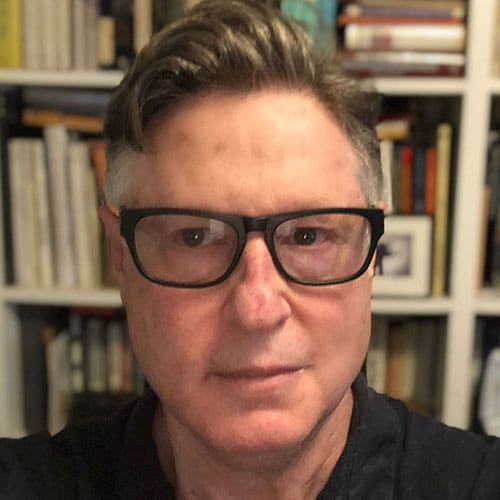I used to have this Thanksgiving Day ritual in New York: no matter what I was doing, or where I was going, I would find a way to be near a radio around 11:30 a.m., to tune in to WNEW-FM 102.7’s broadcast of Arlo Guthrie’s “Alice’s Restaurant,†in its entirety, in all its musical and comedic glory.
Over the last few years in Los Angeles, I’ve acquired a similar accidentally/on purpose habit: every year around this time, I manage to stumble onto Ruth Seymour’s annual Chanukah tribute to Yiddish, “Philosophers, Fiddlers & Fools,†on KCRW-FM 89.9. This year the show will air on Dec. 19, from noon-3 p.m. It’s the 25th anniversary program.
Radio is a very personal medium, and to be driving around in the bright sunshine and suddenly happen upon a Yiddish song from the days of the Second Avenue Theater — or hear a short story by a Yiddish master — is surreal. But the show is so personal, so eclectic, so compelling, that on more than one occasion I’ve found myself waiting in the parking lot to hear the end of a song or rushing back to my car after a meeting to hear what Seymour would play next.
Seymour’s credentials as a Yiddishist are impeccable: as a young girl growing up in the Bronx, she attended school at Sholem Aleichem; later at the City College of New York she studied under the great Yiddish scholar Max Weinreich. Back then, Seymour feared for the future of the language. However, Weinreich said to her: “Yiddish is magic. It will outlive history.â€
Seymour joined KCRW in 1977, when the radio signal barely broadcast beyond Hollywood and their offices were located at John Adams Middle School — you had to cross the playground to enter the station. In 1978, Seymour, feeling that in a society that is overwhelmingly Christmas-oriented “we should do something for Chanukah,†created a program whose format has remained consistent to this day.
Regardless of when Chanukah begins, the show is always on a Friday so Seymour can wish her listeners a “good yontif†(happy holiday — a traditional greeting for the Sabbath and holidays). The first part is traditional folk music — and the selections are often eclectic with recordings from the United States, Romania, France and Canada.
The second part is a memorial section where Seymour plays such songs as the Warsaw Ghetto Partisan’s song, “Zog Nit Kayn Mol†(Never Say), as well as “Ani Ma’amin†(I Believe). She always ends this section by reading the final page of Andre Schwarz-Bart’s elegiac novel, “The Last of the Just.â€
The third is a dramatic reading of a short story. One of the highlights, Seymour recalled, was the year Lauren Bacall read “A Ghetto Dog†by Isaiah Spiegel. This year, Theodore Bikel will read the late Isaac Bashevis Singer’s “Androgynous,†which was recently published in The New Yorker.
The final hour is what Seymour calls “the Second Avenue Hit Parade,†where she plays many of the old chestnuts — songs so familiar you forgot you even still knew them.
For Seymour, Yiddish remains the language of exile, of the galut (Diaspora) — it is the mamaloshen (the mother tongue). The program is a chance to share her heritage, which has informed a great part of her character. The Chanukah program, Seymour confesses, is “a love letter to my own childhood.â€
The irony is that when Seymour first conceived the show, Yiddish seemed to be disappearing. Today there are more recordings than ever. The Milken Archive of American Jewish Music has just released “Great Songs from the Yiddish Stage: Abraham Ellstein (1907-1963).†That this CD is marked “Volume 1†speaks volumes in and of itself.
Need more evidence of a resurgence of Yiddish? This week, the California Institute for Yiddish Culture and Language in Marina del Rey is offering intensive classes in language and culture as well as a Dec. 20 concert at UCLA featuring Bikel.
Earlier I mentioned Singer’s passing because you wouldn’t guess it by his literary output. Since his death in 1991, Singer has published several novels, including my dream film project, “Shadows on the Hudson,†and many short stories. Frankly, I am equal parts jealous and annoyed that Singer has published more dead than I probably will alive. The whole point of dying is that other people get a turn — in estate law they have “Rule Against Perpetuities.†But apparently not at Singer’s publishing house.
That being said, it is worth noting that Singer’s “new†publications (originally published in Yiddish in the Forverts), reveal an earthier, darker side than his American image as a grandfatherly imp, the Yiddish Yoda. For example, “Shadows†is the underside of “Enemies: A Love Story†— a novel of “Survivors Gone Wild†in the New World. Similarly, “Androgynous†can be seen as the darker version of “Yentl†— not a woman who wants to be a man, but a woman who is both a man and a woman.
Nonetheless, Seymour still has cause for concern: she is worried about Yiddish being used as a marketing ploy in countries without Jews. Also, when the show first aired, “this one program received more mail than any other during the rest of the year combined. That,†she admits, “has diminished.â€
“I no longer feel I am single-handedly keeping Yiddish alive,†Seymour says, “Now, it’s just a Chanukah program.â€
Let me correct Seymour: it’s not just a Chanukah show — it’s a tradition, accidentally/on purpose. As for keeping the magic of Yiddish alive, Bikel said it best: “Yiddish is like the theater, ‘the fabulous invalid,’ always dying, never dead.â€
For more information on the concert, call (310) 745-1190, or visit www.yiddishinstitute.org.





















 More news and opinions than at a Shabbat dinner, right in your inbox.
More news and opinions than at a Shabbat dinner, right in your inbox.